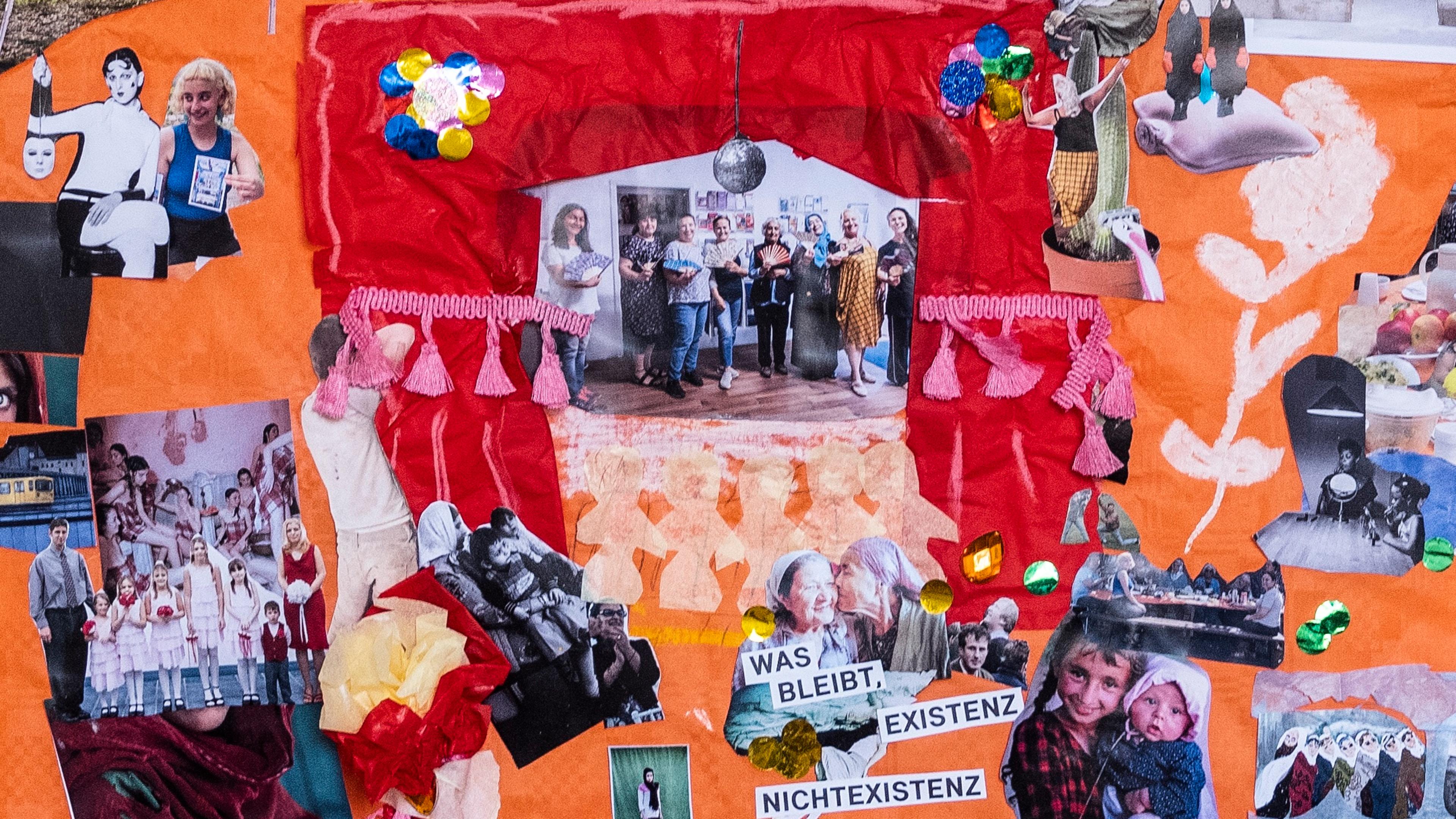Mercurial Cycles | Hüma Utku & Patricia Wolf
- Field Recordings
- Ambient
- Experimental
Loading

With Julianne Chua, İpek Çınar and The Supporting Act Foundation
Read transcript here.
Mutfak dishes out diasporic and decolonial perspectives on food, family and fictions peppered with interviews, field recordings, sound archives and poetry.
In our first episode, we discuss İpek Çınar’s participatory and socially engaged project Tea Sugar Dream, which plays on the Turkish phrase for “thank you,” teşekkür ederim. Tracing the intergenerational experiences of migration between Turkey and Germany through a conversation on food metaphors and gendered spaces, we unravel strands of unexpected encounters, modes of finding and sustaining collective joy, and ways of transmitting somatic knowledge through karaoke, cooking, collage, dancing and breathing.
Artwork by Hilal Bozkurt, Emine Can, Julianne Chua, İpek Çınar, Gülşen Dur, Aysel Özçoban, Nevim Şen, and Nursena Topcuoğlu
Teasugardream to Nicky Böhm, Gaby D'Annunzio, Richard Akingbehin, George Patrick, Sophie Douala, Maryama Luccioni, Dauwd Al Hilali, and Faruk Çobanoğlu for the mentorship, guidance and support.
Always room for dessert:
9/8fight41. Directed by Gizem Aksu, gzmaksu, 2022.
Abadan-Unat, Nermin. Bitmeyen Göç: Konuk İşçilikten Ulus-Ötesi Yurttaşlıǧa (Unending Migration: From Guest Worker to Transnational Citizen). İstanbul Bilgi Üniversitesi Yayınları, 2002.
Ahmed, Sara. The Cultural Politics of Emotion. 2nd ed., Edinburgh University Press, 2014.
---. The Promise of Happiness. Duke University Press, 2010.
Aşk, Mark ve Ölüm (Love, Deutschmarks and Death; Liebe, D-Mark und Tod). Directed by Cem Kaya, Rapid Eye Movies, 2022.
Aziz, Manal. “But First, Let’s Eat: The Kitchen as a Space for Uncomfortable Conversations.” Al Hayya, no. 3, 2023, p. 108.
Batuman, Elif. “The Memory Kitchen.” The New Yorker, 12 Apr. 2010, www.newyorker.com/magazine/2010/04/19/the-memory-kitchen.
Bilecen, Başak. “Altın Günü: Migrant Women’s Social Protection Networks.” Comparative Migration Studies, vol. 7, no. 11, 2019, comparativemigrationstudies.springeropen.com/articles/10.1186/s40878-019-0114-x.
Bucak, Fatma. Suggested place for you to see it. 2013, Arter, Istanbul. Arter, www.arter.org.tr/EN/exhibitions/fatma-bucak-dususe-dair-bir-baska-hikaye-daha/108.
Campt, Tina M. Image Matters: Archive, Photography and the African Diaspora in Europe. Duke University Press, 2012.
Çınar, İpek. This country doesn’t love us. 2022, Oyoun, Berlin. İpek Çınar, www.ipekcinar.info/this-country-doesn-t-love-us.
DaPonte, Amy A. “Candida Höfer’s Türken in Deutschland as ‘Counter-publicity.’” Art Journal, vol. 75, no. 4, 6 Jan. 2016, artjournal.collegeart.org/?p=7992.
Duvarlar-Mauern-Walls. Directed by Candan Can, Surela Film, 2000, vimeo.com/255340338.
Erkmen, Ayşe. Evde (Am Haus). 1994, Oranienstraße 18, Berlin. Ayşe Erkmen, ayseerkmen.com/works.
Federici, Silvia. Beyond the Periphery of the Skin: Rethinking, Remaking, and Reclaiming the Body in Contemporary Capitalism. PM Press, 2020.
Gast Arbeiterin. “Intervention auf Türkisch — Ayşe Erkmen.” renk, 18 Nov. 2015, renk-magazin.de/intervention-auf-tuerkisch-ayse-erkmen.
Göktürk, Deniz. “Turkish Delight—German Fright: Unsettling Oppositions in Transnational Cinema.” Mapping the Margins: Identity Politics and Media. Hampton Press, 2003.
Kirli, Cengiz. “Coffeehouses: Leisure and Sociability in Ottoman Istanbul.” Leisure Cultures in Urban Europe, c. 1700–1870: A Transnational Perspective. Manchester University Press, 2015, pp. 161–82.
Segal, Lynne. Radical Happiness: Moments of Collective Joy. Verso Books, 2017. Şahin, Reyhan. Yalla, Feminismus!. Tropen, 2019.
Türkischer Frauenverein Berlin, www.tuerkischerfrauenverein-berlin.de. van der Kolk, Bessel. The Body Keeps the Score: Brain, Mind, and Body in the Healing of Trauma. Penguin Books, 2014.
Weems, Carrie Mae. The Kitchen Table Series. 1990. Carrie Mae Weems, carriemaeweems.net/galleries/kitchen-table.html.